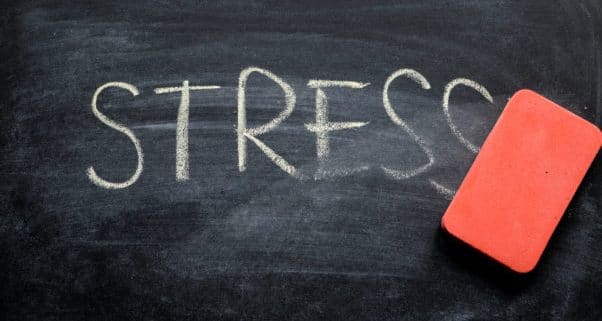Your Brain Needs Water

In order for our brains to function optimally, we need to ensure we stay hydrated. Brain cells need water (amongst other things) to operate or they will quickly lose efficiency when the balance is lost.
Drinking water is not just about quenching thirst. Studies have shown that dehydration can actually cause the brain to shrink, linking to declining memory, difficulty thinking clearly and doing complex tasks (like a crossword).
The good news is, having a glass of water quickly brings the brain back to normal. Other studies have shown that students who drink water before an exam can do up to three times better than those who had none.
Water could also be the answer to those who wake up grumpy. On a typical night’s sleep, there are up to 10 hours without water. We sweat and breathe out moisture and therefore can be dehydrated when we wake, which can affect mood.
If you want to be on top of your game or avoid that afternoon slump, try water to maximise your thinking, focus and mood.
6 signs you could be dehydrated:
- You’re tired
- You’re hungry
- You have a headache
- Your skin is dry
- You feel hot
- You’re grumpy
Our guideline is 30ml of water for every Kg of body weight (eg 30ml x 56kg=1,680ml or rounded to 2 litres water).
We are lucky we live in a part of the world that has access to clean water. It’s something to be grateful for. Consider donating to a charity such as https://thewaterproject.org/give-water to help those struggling without water.
Talk to alleviate stress

There are many ways to deal with stress. Exercise, mindfulness, spending time in nature are all effective ways to manage your stress. There is another way to manage stress which is very simple and incredibly effective – talking.
In military settings, research has shown that soldiers of war who talked about the stress they experienced suffered less PTSD than those who didn’t talk. Talk therapy has also shown to be a powerful treatment for people suffering depression or anxiety and can often ease symptoms when used alongside medication.
Talking alleviates stress in many ways. You may not be seeking the answers to what is stressing you, but just giving voice to your concerns can allow you to see the wood for the trees and even discover solutions for yourself.
Alternatively, you may be wanting feedback or advice from another person. Bouncing ideas off someone and getting their input can often help you see your problems in a different light. We are innately social beings, so it’s natural and normal to reach out to others for advice.
Family and friends can be great to talk to (providing they are not the problem in the first place). A trusted work colleague or even relevant online forums can be a great resource. It’s important we don’t bottle our stress up, which, over time, can affect our health.
How to approach tough conversations
If the thought of having a tough conversation with someone is stressing you out, a great model to follow is the SBI model – Situation, Behaviour, Impact. For more on this watch our video or print out the SBI model framework.
Simply talking can take the weight off our chest and help alleviate the symptoms of stress.
Make Stress Your Friend

Our lives are busy juggling work, finances, marriage, kids, family, friends – the list goes on. We are constantly hearing from health experts that stress is bad for us and that we need to be less stressed which, ironically, often makes us feel more stressed. This is making us sick and people are even dying from stress-related diseases.
What if it’s not the stress that’s killing us, but instead it’s our responses and perception of stress that’s killing us? Research is showing that it’s in our body’s natural mechanism to cope with stress, and our reaction and belief around whether stress is a good or bad thing, that is the most harmful to our health.
A popular TED talk by Kelly McGonigal, a Health Psychologist, “How to make stress your friend” is about approaching stress as helpful rather than being the enemy.
She based her talk on a study of 30,000 people in the US over eight years. They were asked questions such as “How much stress have you experienced in the past year?” and “Do you believe that stress is harmful to your health?”. Interestingly, those who expressed a great deal of stress but didn’t view it as a harmful experience had the lowest risk of dying, whereas those who said they had experienced a lot of stress and viewed it as harmful had a 43 percent increased the risk of dying.
McGonigal says if change our mindset and view our responses to stress as helpful to our performance, we will be less stressed out, less anxious, more confident. That pounding heart? It’s preparing you for action. Your increased breathing rate? It’s simply getting more oxygen to your brain. Your body will naturally manage the stress response and calm the nervous system down, as long as you don’t allow yourself to get worked up over a stressful situation.
There’s even a term for ‘good’ stress – Eustress pronounced YOU-stress. It is the type of stress we feel when we are out of our comfort zones, but working towards something bigger or feel excited or challenged in a good way. Eustress provides us with an energy boost to perform challenging activities – especially where we need to focus and put in the extra effort. So, what if you were to consider all stress as Eustress? There’s no difference between Eustress and Distress, other than our reaction to it.
As you can see, how you think about stress matters. The next time you are stressed, stop, take a deep breath and say to yourself “This is my body, rising to the challenge.”
Watch the full Ted Talks here: https://www.ted.com/talks/kelly_mcgonigal_how_to_make_stress_your_friend
Movement Snacks
 Most of us think we need to sweat it out at the gym or go for a long run to be active and if we miss those opportunities due to our busy lives, we beat ourselves up. What counts as exercise has been institutionalised to the point that if it’s not a dedicated chunk of time in a dedicated place, it doesn’t count. There are a lot of ‘should’s’ going on – I should exercise, I should go to the gym. It’s these ‘should’s’ that can set us up to fail, over and over again. Sound familiar?
Most of us think we need to sweat it out at the gym or go for a long run to be active and if we miss those opportunities due to our busy lives, we beat ourselves up. What counts as exercise has been institutionalised to the point that if it’s not a dedicated chunk of time in a dedicated place, it doesn’t count. There are a lot of ‘should’s’ going on – I should exercise, I should go to the gym. It’s these ‘should’s’ that can set us up to fail, over and over again. Sound familiar?
At Ritualize, we want to challenge the notion of what being active is and change how we view exercise.
What’s important is you find something you enjoy, not something you ‘should’ be doing. The research is showing that if you enjoy your choice of activity, you are more likely to stick with the healthy behaviour over the long-term.
A great way to rewire your brain around what counts as exercise is to discover what we call Movement Snacks. If you don’t like exercise or are simply too busy to get to a gym class, you will be surprised how active you can be throughout the day. Some suggested Movement Snacks are:
- Housework (it counts!)
- Meet for a coffee and a walk rather than sit in a cafe
- 30 second on the stop sprint
- Gardening
- Running around with the kids
- Squat while brushing your teeth
- Have a walking meeting rather than in a boardroom
- Walk while you talk on the phone
- Park the car in the furthest car park from the shops
- Ritualize ZUU workout at home
Of course, if you love your gym classes or your runs, keep doing it. I love to run because it makes me feel good, but if you are someone who doesn’t like it, don’t do it. Choose something you actually enjoy.
I love this approach to how we think about physical activity because it allows those who think they are not active to discover they either are or they can be.
Think about what Movement Snacks can be incorporated into your daily life and make them count.
6 motivational quotes for inspiration

If you need some words of wisdom to inspire you, motivate your mind, achieve your goals, or overcome your fears, read on..
It can be overwhelming trying to make lifestyle changes. Your goal can feel so far away and almost impossible to achieve, and this can dissuade you from staying on your journey. Thoughts in your head are telling you “this is too difficult”, “you’re not strong enough for this”, “what’s the point”, “I don’t have the time”, “I’m too old
Instead of letting these negative thoughts cloud your mindset, find quotes that inspire you. Jonathan Fader, psychologist and motivation expert says the message that someone else believes you can achieve what you want to achieve can be a powerful incentive to try harder. “There’s a little bit of implicit coaching that’s happening when you’re reading [motivational quotes]. It’s building that self-efficacy in that kind of dialogue that you’re having with yourself,” Fader says
Here are some of our favourites:
“It’s not about perfect, it’s about effort. And when you bring that effort every single day, that’s where transformation happens. That’s how change occurs” – Jillian Michaels, Well-known American Personal Trainer, author and presenter.
“Little by little, a little becomes a lot” – Tanzanian Proverb and a bit of a mantra of ours here at Ritualize. Think of change as small steps you repeat over time to that you don’t feel overwhelmed.
“Become a priority in your life” – Lori Bregman – Author of The Mindful Mom-To-Be: A Modern Doula’s Guide to Building a Healthy Foundation from Pregnancy Through Birth
“When life puts you in tough situations, don’t say “Why me?”, say “Try me!” – John Assaraf, spiritual entrepreneur, philanthropist and teacher.
“If you can’t fly then run, if you can’t run then walk, if you can’t walk then crawl, but whatever you do you have to keep moving forward.” —Rev. Martin Luther King, Jr.“If you quit once, it becomes a habit. Never quit” — Michael Jordan
Do you have a favourite quote? We’d love to read them, so share them with us in the comments below!
Thinking about your why can also be a motivation to reach your goals.
Being grateful makes us happier

Imagine feeling thankful and full of joy on an ongoing basis.
A major step in that direction is through a daily gratitude ritual.
Each day expressing thankfulness and appreciation in all parts of your life for both the big and small things alike means you concentrate on what have, not what you don’t have enough of.
Here are a few hints to develop a daily gratitude ritual:
- Wake up every day and tell yourself (or someone else) what you are grateful for
- Get each member of your family to say one thing they are grateful for at the dinner table
- At the end of the day list the 3 things you are most grateful for
- Start a gratitude journal – Write down all the things you are grateful for every night.
- Recognise and be grateful for the positive things you have done in your life, no matter how big or small
- Let others know how grateful you are for who they are or what they have done.
Being grateful has shown to make us happier and healthier and even help marriages work! The physical and psychosocial benefits of this simple rituals are quite amazing.
Try adopting a gratitude ritual each day. If you’re on the Ritualize app, you can enter what you’re grateful for on your ritual board and either let others know through the Ritualize feed or keep it private. Either way, you will start feeling the benefits for yourself and others around you almost straight away.






